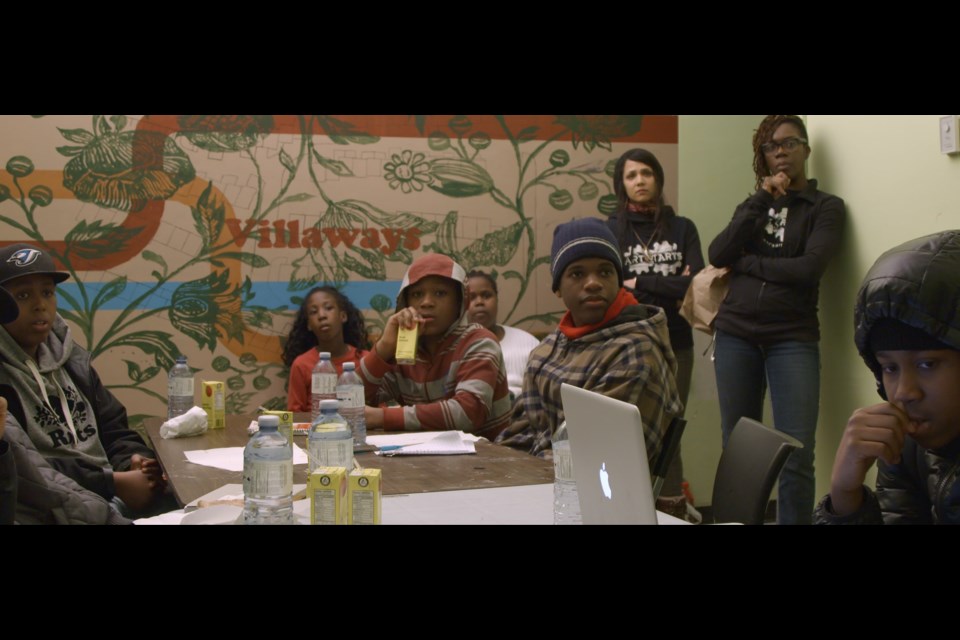Black History Month adds an extra focus on Black film, especially for non-Black audiences. You could live your life watching everything else but Black films, but why? This month was established as an annual observance specifically so that people could come to a better understanding of the Black experience for the betterment of our society in general. Mutual understanding fosters harmony, and that's all there is to it.
Of course, there's always the added benefit of the entertainment and educational value that Black film affords. To sweeten the deal, there are several venues to find Black films to watch in the comfort of your own homes, and many of them are offering them up for free.
The St. Albert Public Library is your first stop. This month, it has lined up a series of Black Film Watch Parties on Friday evenings. These free Zoom-based screenings are co-hosted by prominent and respected members of our local Black community, and have already been immensely popular and successful. This week's event will feature Mr. Emancipation: The Walter Perry Story as presented by St. Albert City Councillor Ray Watkins. The documentary takes a look at Perry who created an incredible, massive, and long-running Emancipation Day celebration in the unlikeliest of places: Windsor, Ontario. The film was directed by Perry's great-nephew Preston Chase. Please visit sapl.libcal.com/event/3596800 to register. The last screening in the series will be held on Feb. 26. Visit sapl.ca to learn more.
Naturally, the library also has some incredible Black films in its collection for members to borrow. Check out Selma, Driving While Black, The Hate U Give, Black Panther, Roots, Get Out, and many more. There are also lots of titles in the streaming and downloadable categories. The Edmonton Public Library system has its own catalogue, naturally. Register your St. Albert card through MELibraries.ca and you can have access to the EPL and other libraries as well. Going even farther out of town, the provincial interlibrary loan website for Relais D2D has just been reactivated, allowing you to once again request physical library items from across Alberta.
Edmonton's Metro Cinema, still with its doors closed due to the current pandemic, has its own selection of virtual cinema with two free screenings running in conjunction with Black History Month. Until February 28, people can enjoy both Body and Soul and We are the Roots: Black Settlers and their Experiences of Discrimination on the Canadian Prairies. The first is the story of 1920s stage actor and singer Paul Robeson. It's directed by legendary African American filmmaker Oscar Micheaux. The second tells the story of a wave of African American immigrants who moved to Alberta and Saskatchewan between 1905-1912 to escape racism and persecution in the United States. It was directed by Jenna Bailey. Visit metrocinema.org to learn more.
The National Film Board goes even further with its collection called Black Communities in Canada: A Rich History.
"Now more than ever is the time to consider the realities of Canadian-Black communities," reads the opening text of the webpage that offers a selection of nearly 30 films made by distinguished Black filmmakers, creators, and their allies.
"The incredible stories of strength, courage and perseverance in the face of adversity that these films present are not often found in mainstream history books. Black communities and cultures have been part of Canadian history from its earliest days, but sadly, their contributions and the lessons they can teach are rarely studied at the elementary or secondary level in schools."
Check out Black Soul, an animated overview of Black history and culture from Africa to the present day, by acclaimed Haitian-Canadian animator Martine Chartrand. The 1957 short drama Crossroads tackles the same subject of interracial marriage in Guess Who’s Coming to Dinner? but years before Hollywood did. Golden Gloves follows the lives and training of amateur boxers (including Ronald Jones) in Montreal in 1961.
And then there's Trinidadian-Canadian filmmaker Selwyn Jacob’s The Road Taken, which focuses on the Black sleeping-car porters who for decades worked and fought discrimination on Canada’s railways.
"The films in this playlist are some of the most important NFB portrayals of Black communities in Canada and paints a picture of a thriving part of our society in constant evolution."
Again, you can watch all of these films for free. This NFB collection is also where most of the titles come from for the library's Black Film Watch Parties series.


